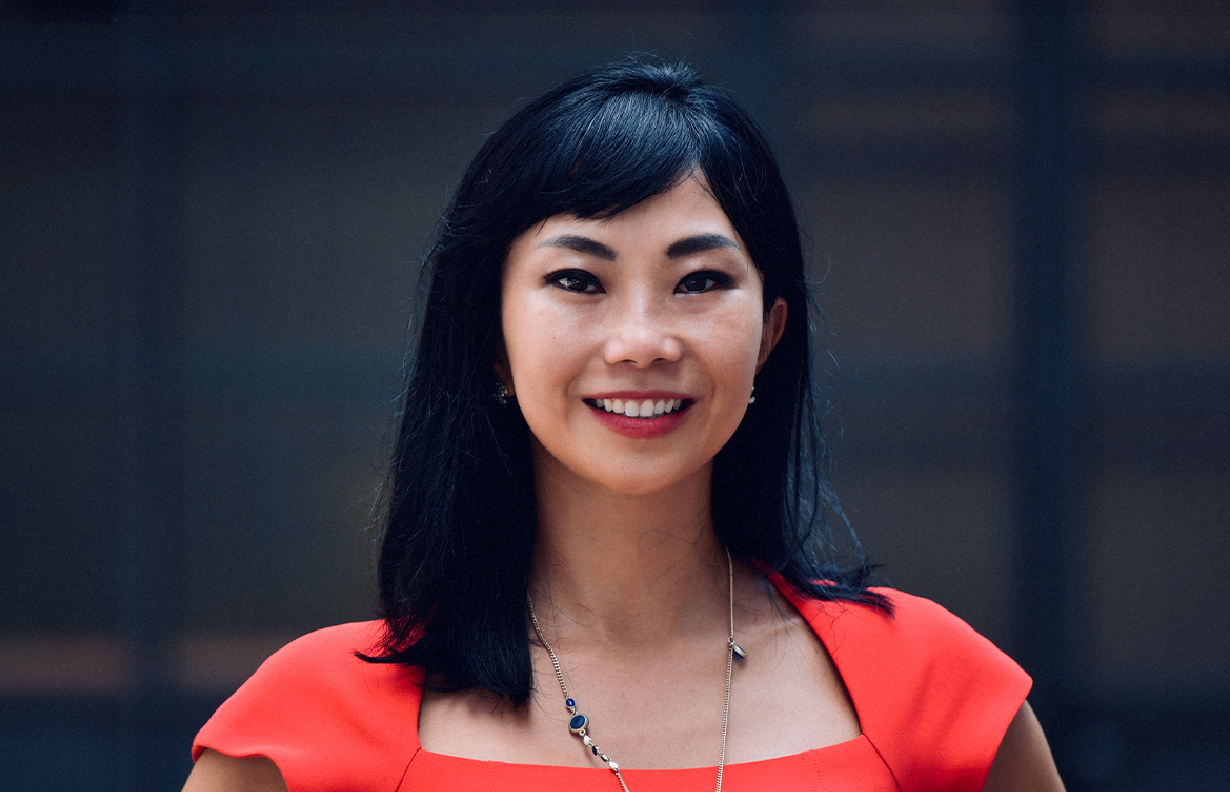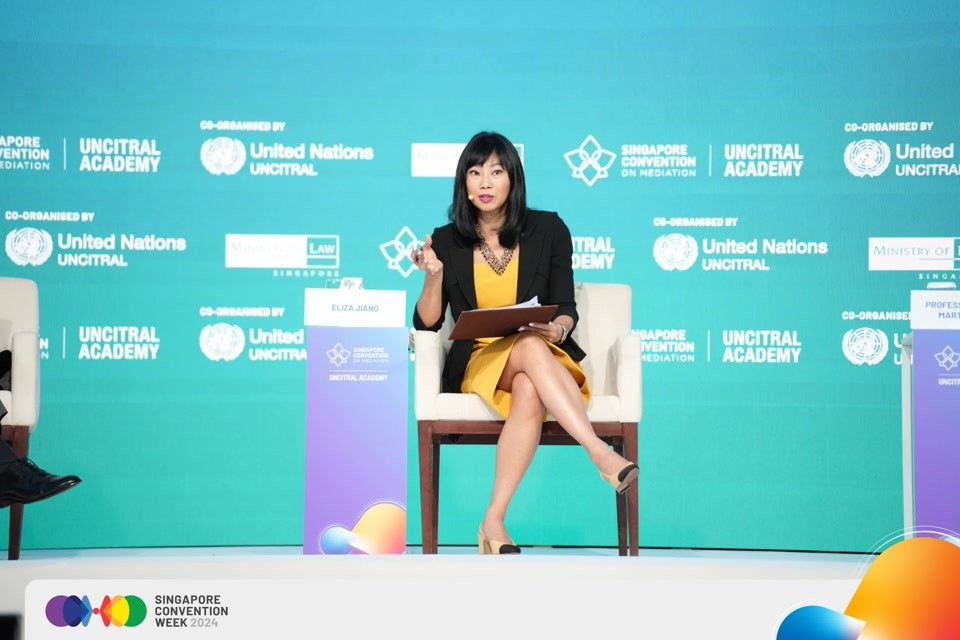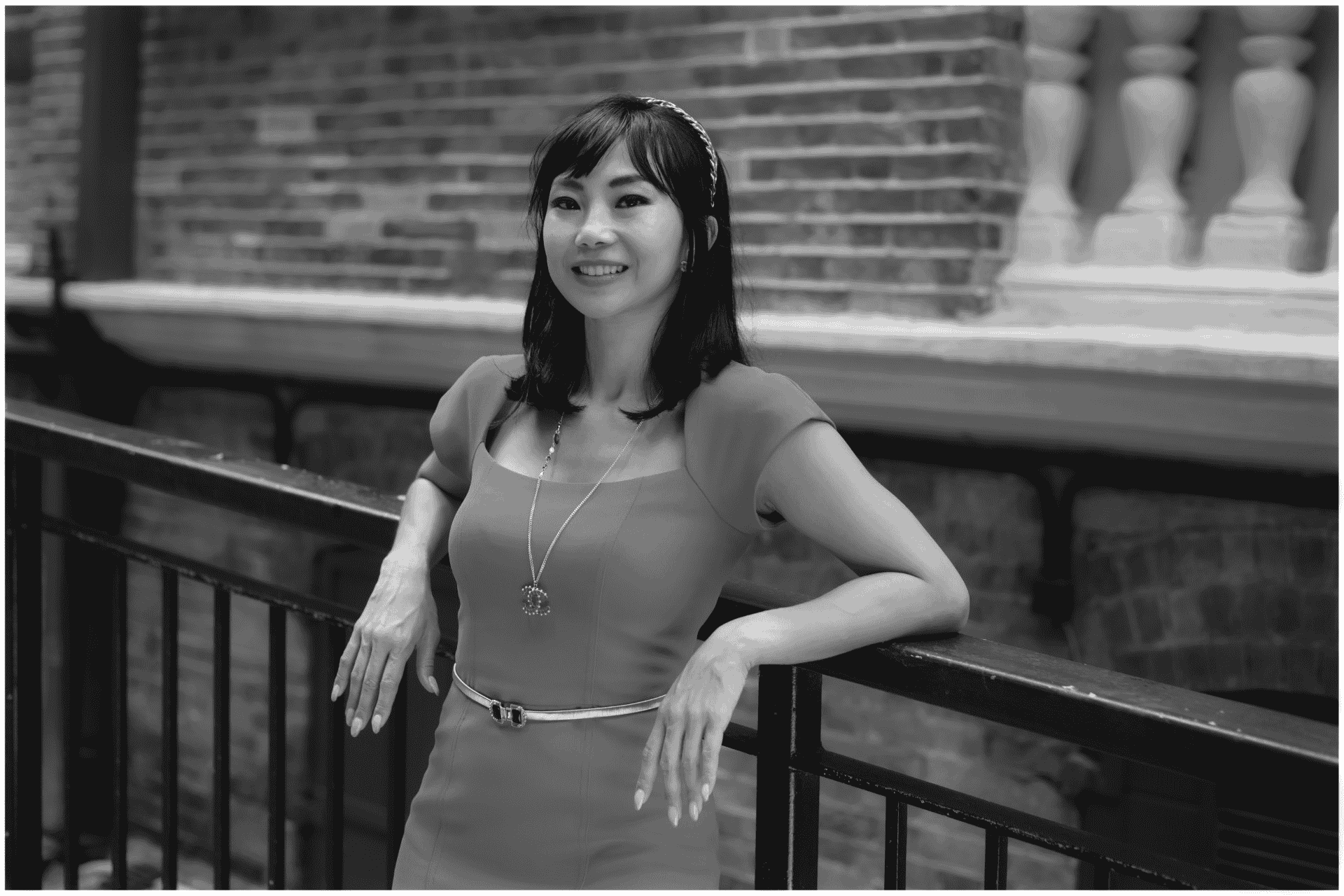Elizabeth Jiang is the perfect example of a modern-day Renaissance woman. By day, she’s the CEO and co-founder of Lawdify, an AI-powered legal tech platform that’s revolutionising how legal services are delivered, making them more efficient and accessible. Her venture-backed firm is touted as the world’s first AI legal analyst.

By night, she indulges her passion for wellness – before relocating to Singapore, Jiang co-founded the now-defunct boutique gym FLYE Fitness Asia in Hong Kong, where she ran immersive dance fitness party experiences. These days, Jiang mostly gets her fix of endorphins from workout sessions such as HIIT, spinning, and trampolining.
Born in Guangzhou, China and raised in Panama City, music and dance – salsa, merengue, reggaeton – played a huge role in Jiang’s formative years. Her parents were economic migrants who settled in the Panamanian capital to start various businesses. Their intention was to create a pathway for Jiang and her sister to pursue higher education in the US or Canada.
Growing up in a vibrant, multilingual environment – Jiang was exposed to Spanish, Cantonese, Mandarin, French, and English – shaped her identity and worldview. “We adopted traditional Chinese values like diligence and hard work while embracing the Latin culture’s warmth and positivity,” she reflects.
Jiang’s unique upbringing coloured her education and international career journey spanning Toronto, Ottawa, New York City, Hong Kong, and now Singapore. She initially embarked on a career as an accountant specialising in subprime mortgage securitisation. However, the 2008 financial crisis prompted her to pivot to law, believing that “A legal education empowers us to systematically learn anything from scratch and [navigate complex problems].”
After graduating from the University of Ottawa with her Juris Doctor, she earned her Masters from Columbia Law School in New York. Her legal career spanned litigation in Toronto and international arbitration in Hong Kong, with a 10-year stint at the International Chamber of Commerce (ICC). There, she resolved complex disputes involving high-value cases in sectors such as oil and gas.
Her diverse experiences equipped her with a unique perspective on global business practices and legal frameworks. However, she also observed that many traditional legal processes remained inefficient. “The way we review documents for case assessment hasn’t changed much in ten years,” she notes. “Printing out documents, highlighting relevant data, manually piecing it together in summaries and tables to digest the documents – these processes are extremely tedious.”
(Related: Scorpio Electric's Joshua Goh is driving innovation and making change)

“Just as Shopify empowered entrepreneurs to sell goods online easily, Lawdify aims to empower lawyers to serve more clients efficiently.”
This realisation sparked her desire to leverage technology to improve these workflows. The turning point came with the advent of ChatGPT3.5 in November 2022. Inspired by her past experiences as an accountant using Excel for data analysis, Jiang envisioned creating intelligent AI tools that could streamline legal processes.
“Clients are going to demand the use of AI to achieve efficiencies and reduce costs. Billing will be based on value-add or results-driven rather than by the hour. AI will become part and parcel of legal practice. There is no way that we will keep doing grunt work the way we are now,” she asserts.
- LIKE SHOPIFY, BUT FOR LAWYERS
Like Shopify, But for Lawyers
In 2023, Jiang took a bold step by leaving private practice to build Lawdify. The platform automates tedious tasks like document review and analysis, enabling lawyers to focus on strategic decision-making and client relationships rather than manual data processing.
Jiang likens Lawdify’s potential impact on the legal industry to that of Shopify on e-commerce: “Just as Shopify empowered entrepreneurs to sell goods online easily, Lawdify aims to empower lawyers to serve more clients efficiently.” Her vision includes making legal services more accessible for small and medium-sized enterprises (SMEs) and individuals who might otherwise be unable to afford traditional legal fees.
To ensure that lawyers can integrate AI seamlessly into their workflows, Jiang conducts weekly training sessions at Lawdify so users can learn how to leverage the platform for specific tasks. At the same time, she emphasises the importance of transparency and accountability in AI applications. “As we integrate AI into our practices, we must ensure that it aligns with ethical standards and serves the best interests of our clients,” she asserts.
(Related: igloo's Anthony Chow on finding the key to success)

Despite working in a traditionally conservative field like law, Jiang has not encountered significant sexism or differential treatment as a tech entrepreneur. She attributes this partly to her deep domain expertise and insights into legal practices. “The challenges I face are not gender-specific, but rather common hurdles for emerging AI-first tech companies,” she states.
Jiang is also passionate about advocating for female empowerment within entrepreneurship. By taking the risk of leaving a stable career to become a founder, she hopes to inspire other women to pursue their aspirations without fear of societal pressures regarding age or family planning. “So, I am leading by example and encouraging other women to push the boundaries, chase their aspirations, and live up to our fullest potential,” she emphasises.
Looking ahead, Jiang envisions Lawdify becoming an indispensable tool for document intelligence and data analysis in the legal industry, similar to how spreadsheets are essential for accountants. “We need Legal Analysts just as businesses have Data Analysts,” she argues.
However, she stresses that while AI tools can enhance efficiency, they cannot replace human lawyers’ judgement nor expertise. “At the end of the day, the human lawyer is the one licensed to practice. Any tool, whether it does translation or analysis like Lawdify, exists to assist the lawyer and not replace her,” she maintains.














 Back
Back
